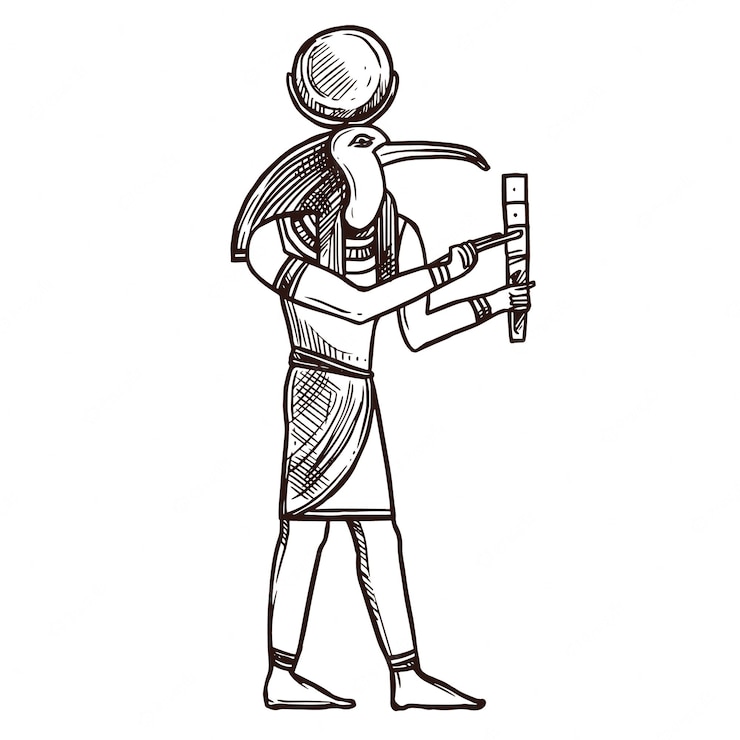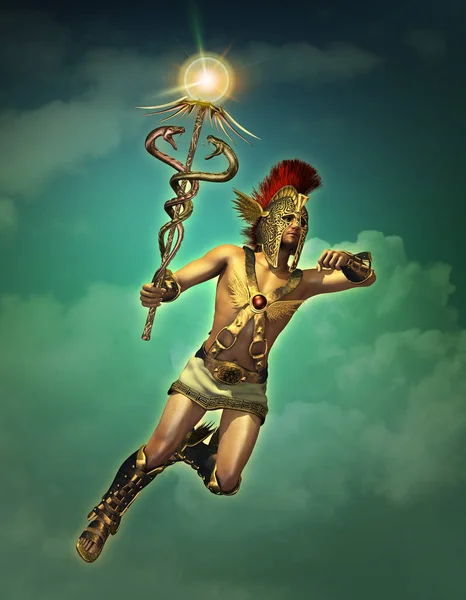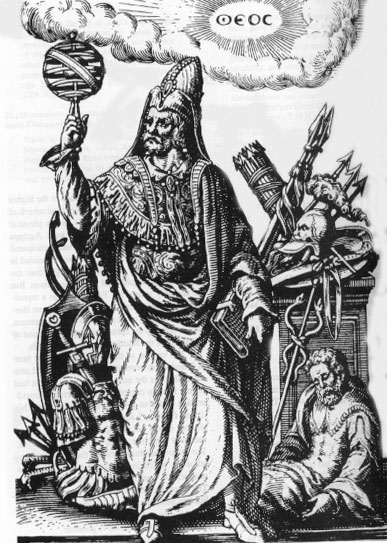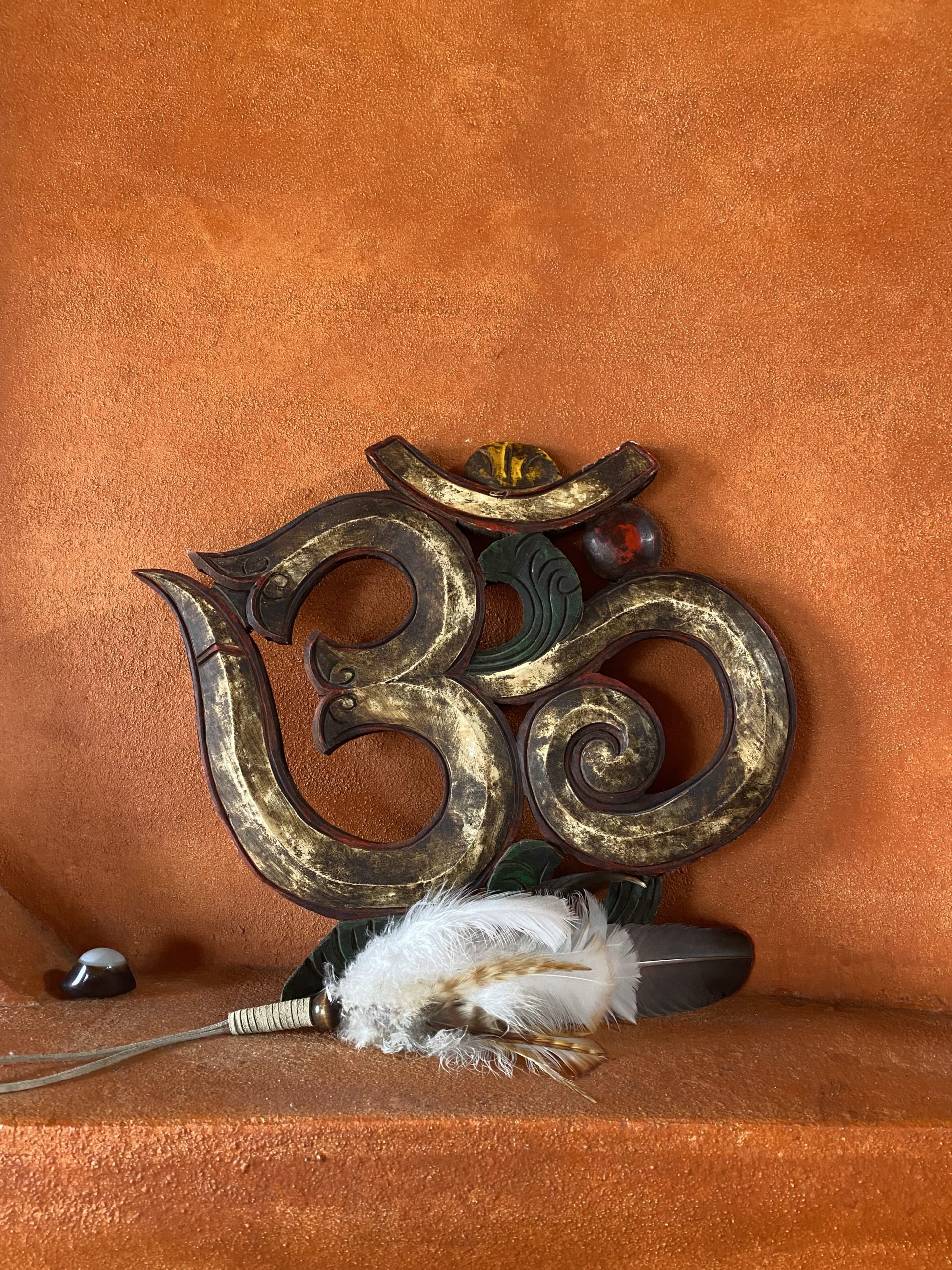Throughout my life I’ve always been curious about what the right answers are. And in a world of endless possibilities, every truth is but a half truth. Because of this, I’ve always felt drawn towards contrarian views that find common ground between different viewpoints. Hermeticism offers a refreshing perspective on the interconnected nature of us and the world around us.
Early on in my never ending quest to find answers, I was drawn to the umbrella of occultism. Hermeticism offered a wealth of knowledge about the inner workings of the world, in a way that wasn’t hijacked by mainstream culture to be twisted into a sterile and joyless one size fits all mold, like the fate so many other spiritual schools of thought face.
When I was volunteering in Australia, I was working on a construction project with a German man who ate nothing but candy. But, despite what you might expect, this man was in impeccable physical condition, regardless of his dietary habits. He claimed that the Hermetic teachings are all he needed to live his life in any way he desired.
So, what is Hermeticism?
Many of the symbols we see in the world today, originated in deep philosophical thought hundreds or even thousands of years ago. For example, the caduceus staff that you see on medical practitioners, was an image given to humans by the Greek god Hermes. And through his texts, a beautiful and uplifting narrative arises in the Mediterranean called Hermeticism, which later gets adopted into Islamic philosophy around 600-700 CE, and more recently is co-opted and obfuscated by the Freemasons.

Hermeticism
Hermeticism is a set of philosophical and religious beliefs based primarily upon the writings attributed to Hermes Trismegistus, a syncretic amalgamation of the Greek god Hermes and Egyptian god Thoth. The Greek god of interpretive communication was combined with the Egyptian god of wisdom; as a spiritual master of astrology and alchemy. Hermetic thought generally tends towards either a monistic or panentheistic understanding of ultimate reality, with all of creation existing as a subset of a cosmic “All” or “Cause.”
The movement is generally traced to Alexandria in the first centuries of the Common Era, where it unified elements of Jewish and Christian mysticism with Hellenistic philosophy and Egyptian occultic beliefs.

Hermetism is often and wrongly confused with Gnosticism, which similarly originated in Egypt in roughly the same era. However similar their philosophical views may be, they have a number of contrasting beliefs. For example, the God of Stoicism, the Hermetic God was omnipresent and omniscient through the material cosmos. In Gnosticism, by contrast, God was transcendent, and the physical universe was an evil place. Hermetic ethics celebrated the divine within the world, while Gnostic ethics were austere, ascetic efforts to escape from the world.
What Are The Hermetic Books?
Because Hermeticism has been mostly kept alive by independent scholars and mystery schools, the belief system has very few rituals or practices, and is mostly survived by text. The Egyptian Hermetic literature, the Hermetica, a category of papyrus scrolls and pages containing spells, mystical conversations, and theological discussion, is the few remaining writing still considered to be written by Hermes Trismegistus.
Though many texts have been falsely attributed to Hermes Trismegistus, Hermeticists commonly accept forty two books as genuine components of the Hermetic revelation. However, most of these books are reported to have been destroyed along with the Great Library of Alexandria.
Aside from the lost works, there are three major sources that form the modern understanding of Hermetic beliefs:
The Corpus Hermeticum
These texts discuss how the universe operates cosmically and how reincarnation works. The sixteen books are set up as dialogues between Hermes and a series of others. The first book involves a discussion between Poimandres and Hermes, supposedly resulting from a meditative state, and is the first time that Hermes is in contact with God.
During the conversations in these books, Hermes discusses the cycles of birth and death.
“Birth is not the beginning of life – only of an individual awareness. Change into another state is not death – only the ending of this awareness.”
Over the series, topics on meditation, compassion, and right livelihood are discussed. Such as this quote from Book 13 where Hermes states how to connect to source:
“Leave the senses of the body idle, and the birth of divinity will begin. Cleanse yourself of the irrational torments of matter”
The Emerald Tablet of Hermes Trismegistus

An elusive Egyptian text, written on an emerald slab, the tablet also references the three parts of the wisdom of the whole universe, to which Hermes claims his knowledge of these three parts is why he received the name Trismegistus (“thrice great”). This tablet discusses alchemy, astronomy, and theurgy, the operation of the stars.
Although there are claims that there are more tablets in this set that expand the current discourse, they remain unfound or lost to the tales of time.
The Kybalion: Hermetic Philosophy
The Kybalion is a modern text, published 1912 by three anonymous authors calling themselves the “Three Initiates.” Despite its modern publish date, the text contains lucid expositions of many Hermetic principles, which earned it a place of prominence among modern Hermetic movements.
The text defines what’s later referred to as the 7 hermetic principles: Mentalism, correspondence, movement, duality/polarity, fluidity, cause & effect, gender. The Hermetic principles align with the modern psycho-linguistic understanding that your thoughts and language determine your experience in life, as well as paint a backdrop for how everything is delicately interconnected.
Mentalism
All is mind, the universe is mental
Correspondence
As above so below; as below so above
Movement
Nothing rests; everything moves; everything vibrates
Duality
Everything is dual; everything has poles; everything has its pair of opposites; like and unlike are the same; opposites are identical in nature but different in degree; extremes meet; all truths are but half-truths; all paradoxes may be reconciled
Fluidity
Everything flows, out and in; everything has its tides; all things rise and fall; the pendulum-swing manifests in everything; the measure of the swing to the right is the measure of the swing to the left; rhythm compensates.
Cause & effect
Every cause has its effect; every effect has its cause; everything happens according to law; chance is but a name for law not recognized; there are many planes of causation, but nothing escapes the law.
Gender
Gender is in everything; everything has its masculine and feminine principles; gender manifests on all planes.”
Reoccurring Themes in Hermeticism
Although the texts are written hundreds of years, to centuries apart, there are still some recurring themes within all the Hermetic teachings. A system of reincarnation, morality, and a unified belief on the creation of the world are some of the key tenants in Hermetic thought.
Reincarnation
As mentioned previously, and we will continue to discuss, Hermeticism claims that the beings of the world live through multiple incarnations on a cycle to move once again to astral bodies. The incarnation system is explained in the Hermetica, Book 11:
“I am Mind and I see another Mind, the one that [moves] the soul! I see the one that moves me from pure forgetfulness. You give me power! I see myself! I want to speak! Fear restrains me. I have found the beginning of the power that is above all powers, the one that has no beginning. I see a fountain bubbling with life. I have said, my son, that I am Mind. I have seen! Language is not able to reveal this. For the entire eighth, my son, and the souls that are in it, and the angels, sing a hymn in silence. And I, Mind, understand.”

The use of the second person in Hermes’s statement, “You give me power!”, indicates a sense of encounter with a divine presence that Hermes experienced as a personal being. The next statement, “I see myself!”expresses the Hermetic teaching that the divine Mind is one’s true self. Hermes did not, in this passage, experience an identity or union with Mind. At this stage in his rebirth, he experienced a sense of the presence of Mind that he interprets as himself.
Later in the Hermetica, Hermes discusses ascension to an astral body, like in this excerpt from Book 13:
“Seeing [. . .] within me an unfabricated vision that came from the mercy of god, I went out of myself into an immortal body, and now I am not what I was before. I have been born in mind….Color, touch or size I no longer have; I am a stranger to them”
Morality
Because one of the 7 principles of Hermetic practice is polarity, it’s no surprise to find that their views on morality are very black-and-white, dual. Hermes explains in Book 9 of the Corpus Hermeticum that nous (reason and knowledge) brings forth either good or evil, depending upon whether one receives one’s perceptions from God or from demons. God brings forth good, but demons bring forth evil.
The Way of Hermes, also attributed to being written by Trismegistus, says that a focus upon the material life is said to be the only thing that offends God:
“As processions passing in the road cannot achieve anything themselves yet still obstruct others, so these men merely process through the universe, led by the pleasures of the body.”
Hermes is saying that one must create, or do something positive in their life, because God is a generative power. Not creating anything leaves a person unable to accomplish anything.
Creation Of The World According To Hermeticism
Hermeticism from all origins, has a similar view about the reincarnation process of humans, because we have fallen from the spiritual world and are on a path towards enlightenment, but the path is filled with many words and pitfalls. As stated in, Isis the Prophetess to Her Son Horus, a Greek book on alchemy written around 100 CE:
“God, having created the universe, then created the divisions, the worlds, and various gods and goddesses, whom he appointed to certain parts of the universe. He then took a mysterious transparent substance, out of which he created human souls. He appointed the souls to the astral region, which is just above the physical region.
He then assigned the souls to create life on Earth. He handed over some of his creative substance to the souls and commanded them to contribute to his creation. The souls then used the substance to create the various animals and forms of physical life. Soon after, the souls began to overstep their boundaries; they succumbed to pride and desired to be equal to the highest gods.
God was displeased and called upon Hermes to create physical bodies that would imprison the souls as a punishment for them. Hermes created human bodies on earth, and God then told the souls of their punishment. God decreed that suffering would await them in the physical world, but he promised them that, if their actions on Earth were worthy of their divine origin, their condition would improve and they would eventually return to the heavenly world. If it did not improve, he would condemn them to repeated reincarnation upon Earth”
Conclusion
Hermeticism has a similar duality component that I grew up learning about in Lutheran church service, to the clear cut morality of our legal system. And I think that the most important lesson to learn in studying Hermeticism, even more important than the stories of Hermes’s life, is the kindness that the ideas are emblems of. These teachings, at base level, have viewpoints that line up with our experiences in life, and have valuable application to our livelihood. Hermeticism, like Buddhism, is a philosophical religion that is mutually compatible with other belief systems, if given the opportunity to be viewed together.
To read more of our blog posts, click here.

